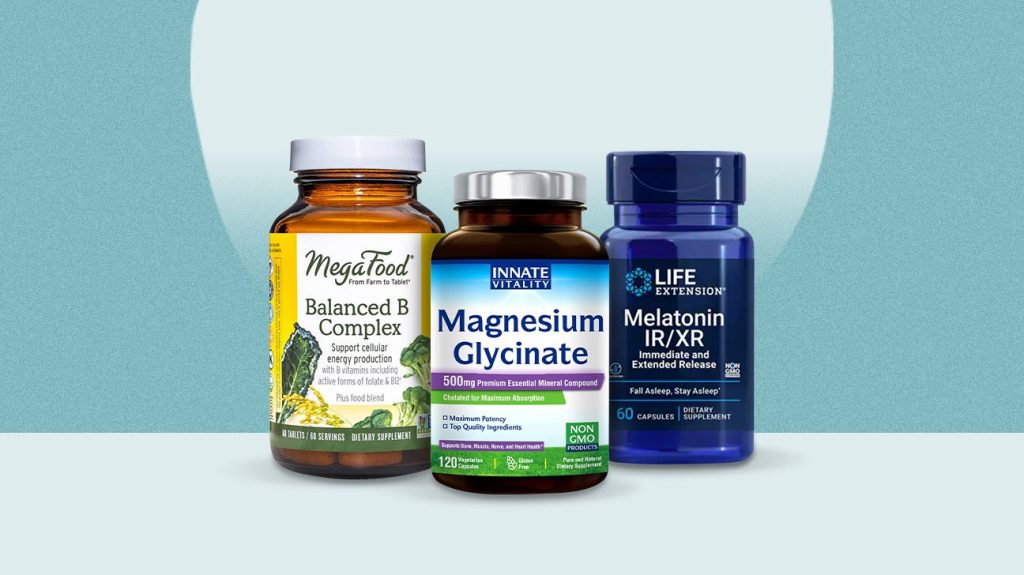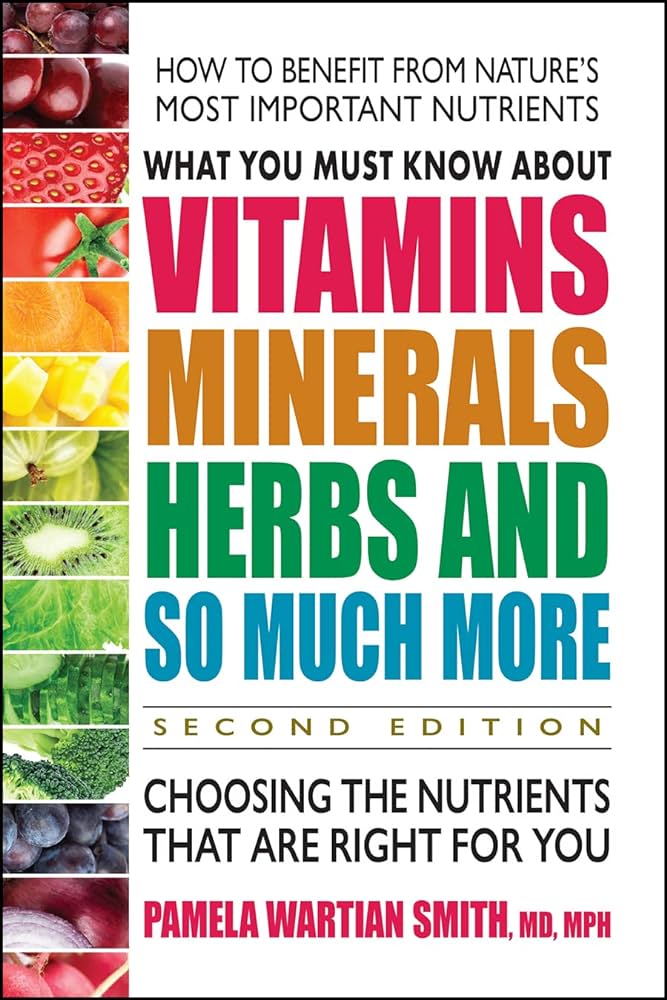Are you looking to enhance your overall health and well-being? Look no further! With a wide range of options, from vitamins and supplements to fitness equipment and mindfulness tools, there are endless possibilities to explore. Whether you’re seeking nutritional guides or holistic remedies, we have you covered. And the best part? You can save money with your free savings card at a pharmacy near you. So why wait? Start your journey towards a healthier and happier lifestyle today.
Vitamins

This image is property of media.post.rvohealth.io.
Introduction to Vitamins
Vitamins are essential nutrients that our bodies need in small amounts to function properly. They play a crucial role in maintaining overall health and well-being. While we can get vitamins from certain foods, sometimes our diet may not provide us with enough of these important nutrients. That’s where vitamin supplements come in handy. In this article, we will explore the benefits of vitamins, different types of vitamins, how to choose the right ones for you, recommended dosages, potential side effects, interactions with other medications, popular vitamin brands, and where to buy them.
Benefits of Vitamins
Vitamins are known for their numerous benefits that contribute to our overall well-being. They support a wide range of bodily functions, including:
- Boosting the immune system: Certain vitamins, such as vitamin C and vitamin D, play a crucial role in supporting the immune system, helping us fight off infections and illnesses.
- Promoting healthy skin, hair, and nails: Vitamins like vitamin A, vitamin E, and biotin are known for their role in maintaining healthy skin, hair, and nails, contributing to a youthful appearance.
- Supporting energy production: B vitamins are essential for converting food into energy, giving us the stamina and vitality we need to go about our daily lives.
- Enhancing cognitive function: Vitamins like vitamin B12 and omega-3 fatty acids have been shown to support brain health and improve cognitive function, including memory and concentration.
- Maintaining bone health: Vitamins such as vitamin D and vitamin K are important for bone health and help prevent conditions like osteoporosis.
These are just a few examples of the many benefits that vitamins offer. Incorporating a variety of vitamins into your daily routine can have a positive impact on your overall health.
Types of Vitamins
Vitamins are classified into two main categories: fat-soluble vitamins and water-soluble vitamins.
- Fat-soluble vitamins: These vitamins are stored in the body’s fatty tissues and can be stored for longer periods. The fat-soluble vitamins include vitamins A, D, E, and K.
- Water-soluble vitamins: These vitamins are not stored in the body and need to be consumed regularly. The water-soluble vitamins include vitamin C and the B vitamins (such as B1, B2, B3, B5, B6, B7, B9, and B12).
Each vitamin within these categories has its own unique role and benefits. It’s important to understand the function and sources of each vitamin to ensure we are getting the right balance in our diet.
Choosing the Right Vitamins
Choosing the right vitamins for your needs can be overwhelming with so many options available. Here are a few factors to consider when selecting vitamins:
- Identify your specific needs: Determine what areas of your health or well-being you want to focus on. For example, if you are looking to boost your immune system, consider vitamins such as vitamin C or zinc.
- Consider your lifestyle and diet: If you follow a specific diet, such as a vegetarian or vegan diet, you may need to pay extra attention to certain vitamins that are commonly found in animal products, such as vitamin B12.
- Consult with a healthcare professional: If you are unsure about which vitamins you should be taking, it’s always a good idea to consult with a healthcare professional. They can help assess your specific needs and recommend the appropriate vitamins for you.
- Research reputable brands: Look for well-known and reputable brands when purchasing vitamins to ensure that you are getting a quality product. Check for certifications and third-party testing to ensure the products meet the necessary standards.
By considering these factors, you can make informed decisions and choose the vitamins that are right for you.

This image is property of post.healthline.com.
Recommended Dosage
The recommended dosage of vitamins can vary depending on factors such as age, sex, and specific health conditions. It’s important to follow the recommended dosages to prevent any potential risks or overdosing.
- Refer to dietary guidelines: Many countries have established dietary guidelines that provide recommendations for vitamin intake. These guidelines can serve as a general starting point for determining the appropriate dosage.
- Read product labels: When purchasing vitamin supplements, always read the product labels carefully. The labels usually indicate the recommended dosage based on age and sex. Additionally, they may provide specific instructions for dosing throughout the day or with meals.
- Consult with a healthcare professional: If you have specific health concerns or are taking other medications, it’s advisable to consult with a healthcare professional. They can assess your individual needs and provide personalized recommendations.
Remember, vitamins are meant to supplement your diet and should not be used as a replacement for a healthy and balanced diet.
Potential Side Effects
While vitamins are generally safe when taken as directed, there can be potential side effects, especially when taken in excessive amounts. Some common side effects include:
- Nausea and stomach upset: Some vitamins, in high doses, can cause gastrointestinal discomfort, including nausea, stomach cramps, and diarrhea.
- Headaches and dizziness: Certain vitamins, such as vitamin D, can cause headaches and dizziness if taken in excessive amounts.
- Allergic reactions: In rare cases, individuals may have allergic reactions to specific vitamins or ingredients in vitamin supplements. This can manifest as skin rashes, itching, or breathing difficulties.
- Interaction with medications: Certain vitamins can interact with medications you may be taking. It’s important to inform your healthcare provider about any supplements you are taking to avoid possible interactions.
If you experience any persistent or severe side effects, it’s important to discontinue the use of the vitamins and consult with a healthcare professional.

This image is property of Amazon.com.
Interactions with Other Medications
It’s important to be aware of potential interactions between vitamins and other medications you may be taking. Some medications can affect the absorption, metabolism, or effectiveness of certain vitamins. Here are a few examples:
- Blood thinners: Some vitamins, such as vitamin K, can interfere with the effectiveness of blood thinning medications like warfarin. It’s important to consult with a healthcare professional if you are taking blood thinners and considering vitamin supplementation.
- Antacids and proton pump inhibitors: These medications can interfere with the absorption of certain vitamins, including vitamin B12. If you are taking these medications on a long-term basis, your healthcare provider may recommend vitamin B12 supplementation.
- Antibiotics: Certain antibiotics can affect the absorption of vitamins, particularly those in the B vitamin complex. It’s advisable to separate the intake of antibiotics and vitamins to maximize their effectiveness.
Always inform your healthcare professional about any medications or supplements you are taking to ensure they can provide you with appropriate advice.
Popular Vitamin Brands
When it comes to choosing vitamin brands, there are numerous options available. Here are a few popular and trusted vitamin brands to consider:
- Nature Made: Nature Made is a well-known brand that offers a wide range of vitamins and supplements. They are committed to quality and have products that cater to various needs, from general health to specific conditions.
- Garden of Life: Garden of Life focuses on providing vitamins and supplements derived from real food sources. They offer innovative formulas and transparency in their manufacturing processes.
- NOW Foods: NOW Foods is a reputable brand that offers a diverse selection of vitamins, minerals, and other supplements. They prioritize quality, affordability, and sustainability.
- Thorne Research: Thorne Research is known for its high-quality vitamins and supplements that are used and recommended by healthcare professionals. They undergo rigorous testing and follow strict quality control standards.
These are just a few examples, and it’s important to do your own research and choose a brand that aligns with your values and meets your specific needs.

This image is property of Amazon.com.
Where to Buy Vitamins
Vitamins can be purchased from various locations, both online and in physical stores. Here are a few options where you can buy vitamins:
- Pharmacies and drugstores: Local pharmacies and drugstores offer a wide range of vitamins and supplements. They often have knowledgeable staff who can assist you in choosing the right products.
- Health food stores: Health food stores specialize in natural and organic products, including vitamins and supplements. They may have a broader selection of brands and types.
- Online retailers: Online retailers, such as Amazon, provide convenience and a vast selection of vitamin products. Read customer reviews and ensure that you are purchasing from reliable sellers.
- Direct from manufacturers: Some vitamin brands have their own online stores where you can purchase directly from them. This can often provide access to exclusive products and promotions.
When buying vitamins, it’s important to check for any discounts, promotions, or loyalty programs that can help you save money while ensuring the quality of the products.
Conclusion
Vitamins are essential for our overall health and well-being. Whether through a balanced diet or supplementation, incorporating vitamins into our daily routine can provide numerous benefits. By understanding the different types of vitamins, choosing the right ones, and following recommended dosages, we can optimize our health and support our body’s natural functions. Remember to consult with healthcare professionals, do your research, and prioritize your well-being when considering vitamin supplementation.

This image is property of Amazon.com.











